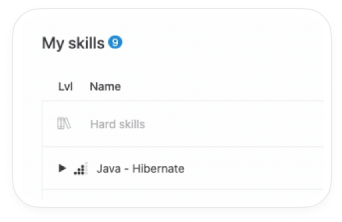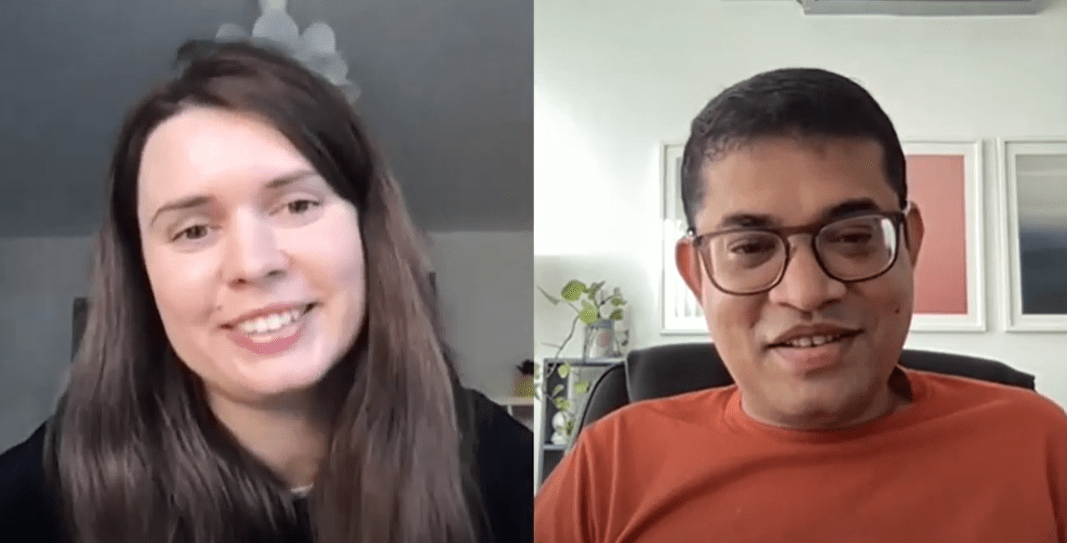Meet Birgit Horak, Managing Partner at Lurse, an independent, partner-run consulting firm.
Path to leadership
Q: Birgit, can you tell us about your career path more? What or who helped and inspired you along the way?
Lurse is a consulting firm and solution provider for HR and occupational pension systems and has been on the market since 1989. I joined Lurse as a consultant in 1992 through a recommendation from a friend – at that time, we were three other colleagues in addition to the company founder Klaus Lurse. Since then, Lurse has developed rapidly, and we now have more than 130 employees, with an upward trend, and we are also much more broadly positioned in terms of content. What has remained is that even after almost 30 years, I still derive a great deal of joy and energy from my work.
The fact that I, as a former competitive athlete, have high expectations of myself and a great deal of ambition, combined with the will to improve continually, has certainly helped me on my professional path. Klaus Lurse, the company’s founder, inspired me in the way that he always stood up for his convictions, even if they were sometimes uncomfortable or did not correspond to the mainstream. In consulting meetings, he’s always been critically reflective; he “didn’t tell anybody what to say” but fought for his convictions. Degrees of freedom, personal responsibility, and self-determined work have always been extremely important to him, and he focused on the benefit for the customer. This is also what still constitutes the Lurse DNA today.
Q: How did you get to where you are now, and what roadblocks you had to overcome?
No real obstacle was ever placed in my way, at most a brief delimitation of the areas of competence when I became a member of the Board of Management and Klaus Lurse was still the majority shareholder on the Supervisory Board. But we found a good solution pretty quickly, and we are still on amicable terms today.
I have never actually planned my career but have always been guided by the things I have energy and which I enjoy. I have gone my way with a positive attitude and a certain amount of curiosity and courage.
Gender gap in HR leadership
Q: In this conversation, we’d like to focus on striving for more diverse leadership, specifically having more women in HR leadership roles. What are your observations on the current diversity landscape, especially in HR leadership?
I see a tendency for more and more companies to address the issue of gender diversity and to strive to deliver results here, for example, by anchoring this topic in their corporate strategies. The most recent example is the VW Group, which wants to employ significantly more female top managers and relies on financial incentives. By the way, our own benchmarks show that something has already happened here in the last 5 years, and the proportion of women in management positions has risen from 11 to 13% across various industries.
For me, however, diversity is not just focused on gender issues; it is about the social, cultural and ethnic diversity of employees. Ultimately, a high level of diversity is enriching for all of us, even making economic sense. Some studies show that diverse teams are more successful!
However, my observation in the topic is also that companies are not moving as fast in the area of gender diversity as would be desirable overall. The voluntary commitment to increase the proportion of women in management positions has not worked, so it is now essential and logical for politics and society to break new ground. I, therefore, believe that regulations such as the FüPoG II (Second Leadership Positions Act) are right and important, even if I would have preferred a model that works on its own.
Developing diversity at your company
Q: Could you please share what strategies you recommend your customers take towards developing and promoting more diverse leadership in their organizations? How willingly do the companies embrace those strategies? What nuances and challenges maybe you observe along the process?
This topic is not the focus of our consulting approach. Nevertheless, I would recommend that clients from HR look for sparring partners to successfully put the company’s diversity approach into practice. Here, the company management, in particular, has the most significant influence on whether the topic can be successfully established and lived.
Challenges caused by the pandemic
Q: The pandemic caused by COVID-19 had a great impact on many professionals, and in particular, women who combine their leadership role with the parent role. It is challenging to stay productive, fully involved in the decision-making process, and sort things out with the children. How has constant home office affected this? Could you share a few thoughts on how companies can support working mothers in this case?
I currently have the utmost respect for working mothers and especially single parents. Balancing the children’s schooling and all the professional issues is a huge challenge.
The home office’s possibility certainly makes the situation easier for many working mothers; on the other hand, I often hear and experience the work intensification that home office leads to.
For me, dealing with the home office’s effects is not a question of formal regulations but primarily a question of the corporate culture. In my opinion, it’s about an attitude and basic approach towards working mothers and fathers and the will to support them as well as possible in their specific situation.
Companies need to create room for maneuver, make working hours more flexible and, if necessary, redistribute work to other people in order to absorb peaks in workload.
In our organization, we have had very positive experiences with home offices, but we also provide relief when necessary.
I think it’s very important for working mothers to be able to trust their contacts in the company and to turn to them when they have concerns and needs.
Paving the way to other women
Q: Finally, we’d like to ask you to share a couple of tips: Can you recommend actionable steps women in HR should take in their own leadership journeys? What skills do women need to build to become better leaders?
I am not a proponent of a particular direction that women should take, but on the contrary, recommend going your own way and finding and cultivating your own (leadership) style.
Authenticity is a very central concept for me in this. It is important to know oneself well, be aware of your strengths and areas of improvement, and reflect on these regularly to continuously develop your personality.
Women have all the skills it takes to be a good leader. They just may need to “allow” themselves to showcase those skills sometimes. It takes a little courage as a woman to say, “I want to lead” or even “I can lead.” Therefore, having courage, sticking with it even in the face of headwinds and having confidence in your own abilities is something I would like to pass on to all women who have a desire to lead.
Download eBook: Women in HR leadership
Insights and actionable steps HR professionals can take to bring more gender diversity in leadership into their companies.
Stay up to date with our newsletter
Every month, we’ll send you a curated newsletter with our updates and the latest industry news.



























 info@hrforecast.de
info@hrforecast.de
 +49 89 215384810
+49 89 215384810






 Pexels
Pexels